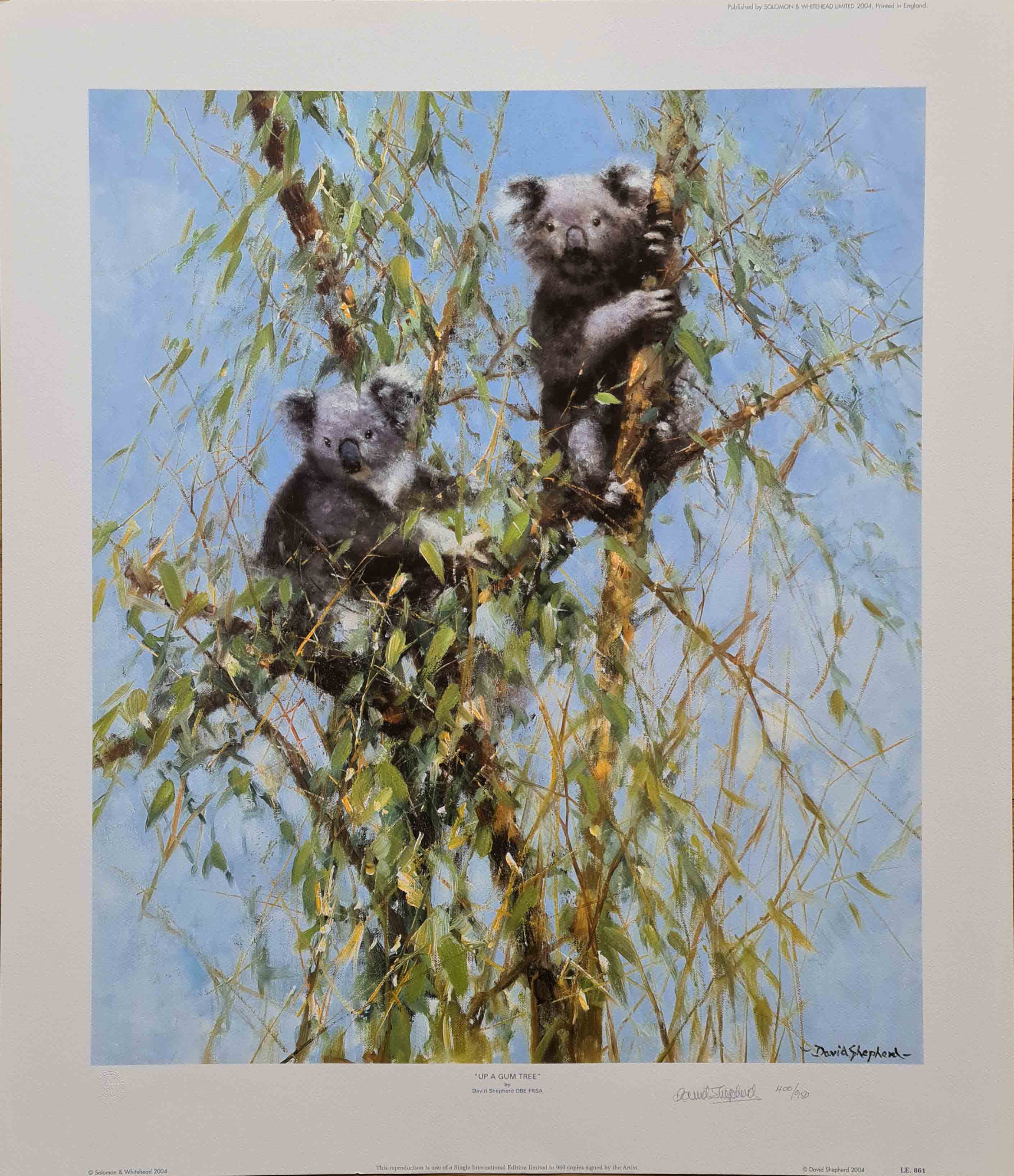Up a gum tree
David Shepherd
CBE OBE FRSA FGRA
Elephants
Signed Prints
Big Cats
Signed Prints
World Wildlife
Signed Prints
British Wildlife
and Landscapes
Signed Prints
Original
Paintings
and Drawings
Aviation
Signed Prints
Military
Signed Prints
Portraits
Signed Prints
Steam Trains
Signed Prints
About us
Contact us
David Shepherd
Home Page
SPECIAL
OFFERS
Silkscreen
Signed Prints
David Shepherd
Books

"Up a gum tree"
Signed Limited Edition of 950
Image Size:- 22" x 18.5"
Published:- September 2004
Special price:- £ 145 including vat! Whilst stocks last.
Mint condition, never been framed; published price £ 195.
The koala or, inaccurately, koala bear[a] (Phascolarctos cinereus) is an arboreal herbivorous marsupial native to Australia.
It is the only extant representative of the family Phascolarctidae and its closest living relatives are the wombats, which are members of the family Vombatidae.
The koala is found in coastal areas of the mainland's eastern and southern regions, inhabiting Queensland, New South Wales, Victoria, and South Australia.
It is easily recognisable by its stout, tailless body and large head with round, fluffy ears and large, spoon-shaped nose.
The koala has a body length of 60 to 85 cm (24 to 33 in) and weighs 4 to15 kg (9 to 33 lb). Fur colour ranges from silver grey to chocolate brown.
Koalas from the northern populations are typically smaller and lighter in colour than their counterparts further south.
These populations possibly are separate subspecies, but this is disputed.
Koalas typically inhabit open eucalypt woodlands, and the leaves of these trees make up most of their diet.
Because this eucalypt diet has limited nutritional and caloric content, koalas are largely sedentary and sleep up to 20 hours a day.
They are asocial animals, and bonding exists only between mothers and dependent offspring. Adult males communicate with loud bellows that intimidate rivals and attract mates.
Males mark their presence with secretions from scent glands located on their chests.
Being marsupials, koalas give birth to underdeveloped young that crawl into their mothers' pouches, where they stay for the first six to seven months of their lives.
These young koalas, known as joeys, are fully weaned around a year old.
Koalas have few natural predators and parasites, but are threatened by various pathogens, such as Chlamydiaceae bacteria and the koala retrovirus.
